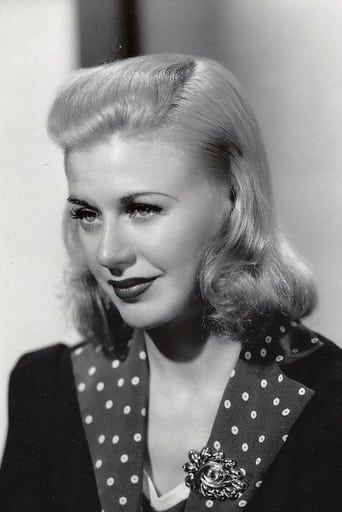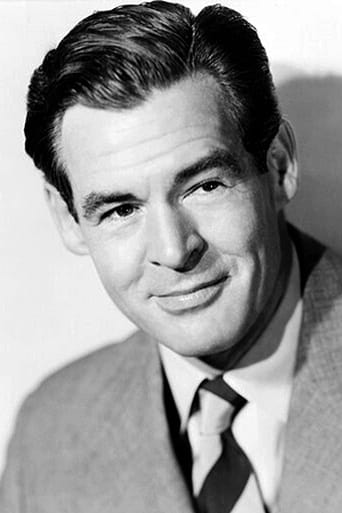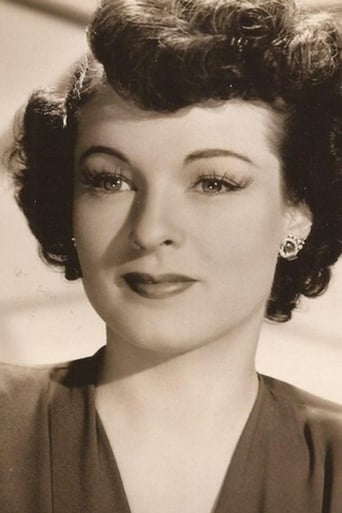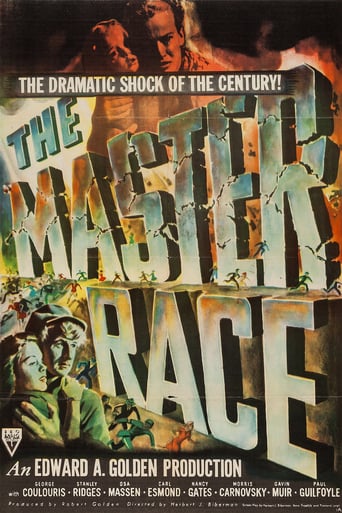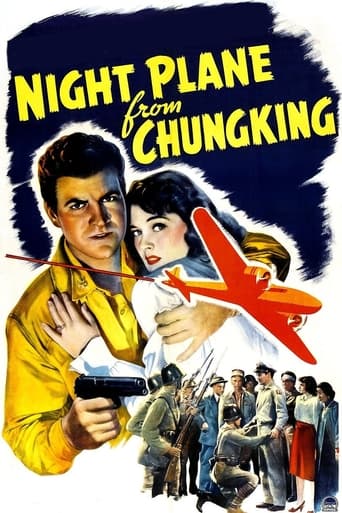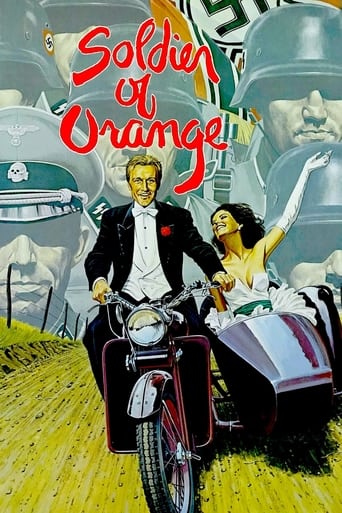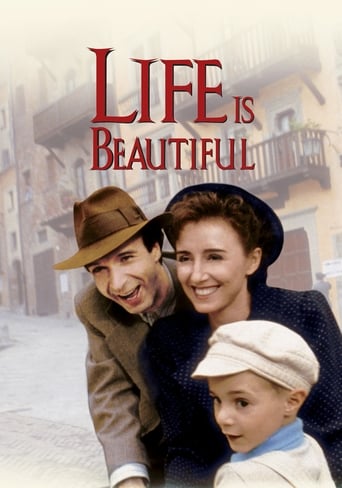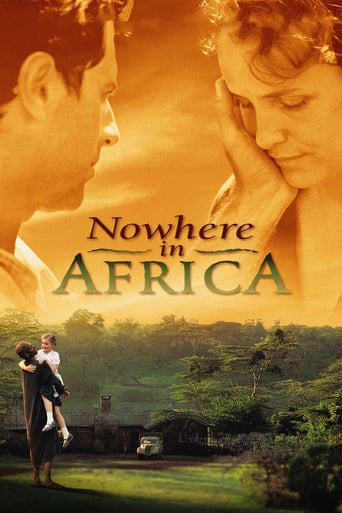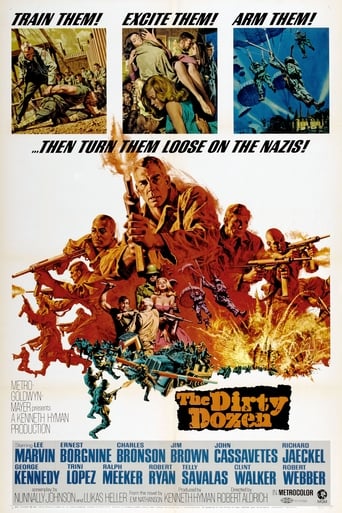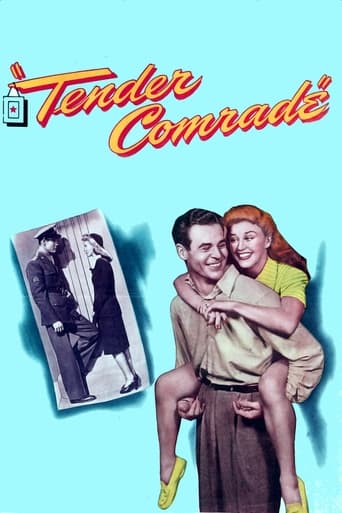
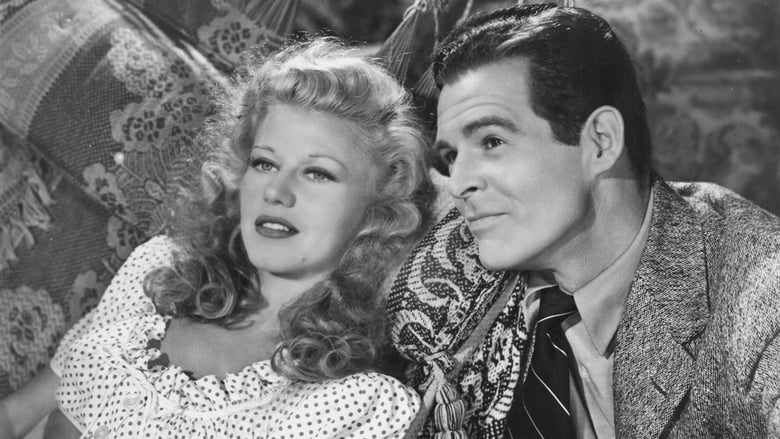
Tender Comrade (1944)
Jo Jones, a young defense plant worker whose husband is in the military during World War II, shares a house with three other women in the same situation.
Watch Trailer
Cast


Similar titles
Reviews
Sorry, this movie sucks
Great Film overall
Good movie but grossly overrated
The acting is good, and the firecracker script has some excellent ideas.
The plot of this propagandistic tearjerker has more than a passing resemblance to LITTLE WOMEN, even down to the central character's name, Jo Jones (Ginger Rogers). Four women whose spouses are fighting abroad during World War II set up home together and learn how to survive. One of them, Barbara Thomas (Ruth Hussey), loses her husband during the Battle of Midway, while another, Doris Dumbrowski (Kim Hunter) has the pleasure of an unexpected visit from her newly-married spouse Mike (Richard Martin). Meanwhile Jo remembers about her courtship and early married life with Chris (Robert Ryan) in a series of extended flashback sequences. Manya Lodge, their newly-engaged housekeeper (Mady Christians) looks back on her early life in Nazi Germany and contrasts it with the happier existence she enjoys in the United States. Inevitably the film has a sad ending. As might be expected from Dalton Trumbo, who later in the decade was to experience several dealings with the House Un-American Activities Committee (HUAC), the script preaches an egalitarian message, of everyone pulling together in order to defeat the perceived threat of Nazism. While family bereavements are inevitable, individuals should realize that this is a consequence of war, and should therefore be spurred on to fight harder. This is as important on the Home Front as it was on the battlefields: in one climactic scene, Jo berates Barbara, who displays a regrettable tendency towards xenophobia, for putting self-interest above community concerns. At the end Jo realizes the importance of practicing what she preaches, so as to ensure a better world for her newly-born child once the war has ended. Despite the undoubted seriousness of its message, the action of TENDER COMRADE tends to drag a little; there are certain sequences (especially the flashbacks to Jo and Chris' early life) that become so treacly that the plot tends to get lost. Rogers gives a creditable account of herself, although it's noticeable that she manages to go through the film without one strand of her impeccably coiffed hairdo falling out of place, in spite of her responsibilities both inside and outside the home.
Ginger Rogers was a much better actress than Dalton Trumbo was a writer (and she had much prettier legs).In fact, in "Tender Comrade," Trumbo presents us with a puzzle: How could a writer responsible for so much hokey, amateurish dialogue (noted by other reviewers) ever get a reputation as being a great or even a good writer? I admit there were two bright spots in "Tender Comrade" that deserve appreciation for the writer: near the beginning, when two strangers comfort each other as their loved ones depart for the war, and when one character tells another how her marriage "proposal" came about.Trumbo, though, being Trumbo later has a silly bit when Jo refers to the socialist plan the group adopts ("from each according to her ability ") as "democracy," further demonstrating his confusing of two different and distinct applications as the same."Democracy" is a more or less political term describing how leaders are chosen (if, for some reason, anyone wants leaders), and "socialism" is a more or less economic term and more or less philosophical term describing how material goods are more or less shared distributed, anyway. ("Socialism" means government ownership of the means of production, to be more pedantic.) There was nothing wrong with the democratically decided idea of voluntary communalism among the housemates, but if a viewer knows Trumbo's predilection for collectivism at least for others, though not so much for himself the whole scene is discomfiting.(An excellent book that portrays Trumbo and others, and shows the dichotomy between what they preached, including sometimes in their scripts, and how they lived is "Hollywood Party: How Communism Seduced the American Film Industry in the 1930s and 1940s" by Lloyd Billingsley. It is probably the best book yet on that era. Read especially about Trumbo and his mansion and the lavish parties he loved to throw, even during the times the soldiers were dying.) Jo's last monologue went on for too long, and really didn't say much it was apparently another failed attempt by Trumbo at being profound and dramatic.But Ginger Rogers said a lot, even with Trumbo's words. She was a much, much better actress than she seems to be generally regarded. She was much, much more than a great dancer.With all my complaints about Trumbo, his moronic politics, the lame plot, and his poor writing, still this is a pretty good movie.It brings back, though not especially well, a particular time in American history.One of the great ironies of that era: Trumbo waxed indignant about the Nazis and the war they instigated. Yet it is the politics of Trumbo and the other collectivists, Nazis and Communists and other kinds of socialists and fascists, that together created the climate that allowed the unmitigated horrors of World War II.The collectivist notions that people are not sovereign individuals but are cogs in the machinery of the state, that they must obey their masters, that they must cheerfully march off to war, to kill and/or be killed, that led to the tens of millions of deaths.Trumbo must share the blame for that evil. He was a vehement proponent of that vicious nonsense.Still, the cast overcomes the weaknesses of the script. If you watch it on Turner Classic Movies, ignore Robert Osborne's ignorant introduction and closing comments, and concentrate on the people, on their concerns and their efforts at overcoming adversity, on how they deal with their menfolks' being in harm's way, on their daily difficulties, including rationing."Tender Comrade" is worth watching.
So many wives went through same as Ginger Rogers in film. (Husband died in war) She was such a great dramatic actress as well as a dancer. She showed such courage, alone with a baby. he was a role model for me alone with children. (I met the man who played her husband in film, Robert Ryan. In real life he was very courageous in his illness and losses.)
Ok, this movie IS dated but so were most of the films made during the WWII. This is not a major earthshaking film, just a nice little movie. Even if it gets a little preachy.Ginger Rogers is more muted in this role, not really one of her strongest performances, but she is good. Robert Ryan, her husband in the film, is actually playing a NICE guy here. This film also includes Ruth Hussey, Kim Hunter, Patricia Collinge and Jane Darnell. They are never really used to a great advantage here.The story is simple enough. These women were left behind by their men who went of to war. They move in together to share expenses and responsibility. They try to run the house democratically but run into problems. If you are looking for a nice little movie to watch, this can be that movie. I do have this in my video collection and have watched it about 3 times.


